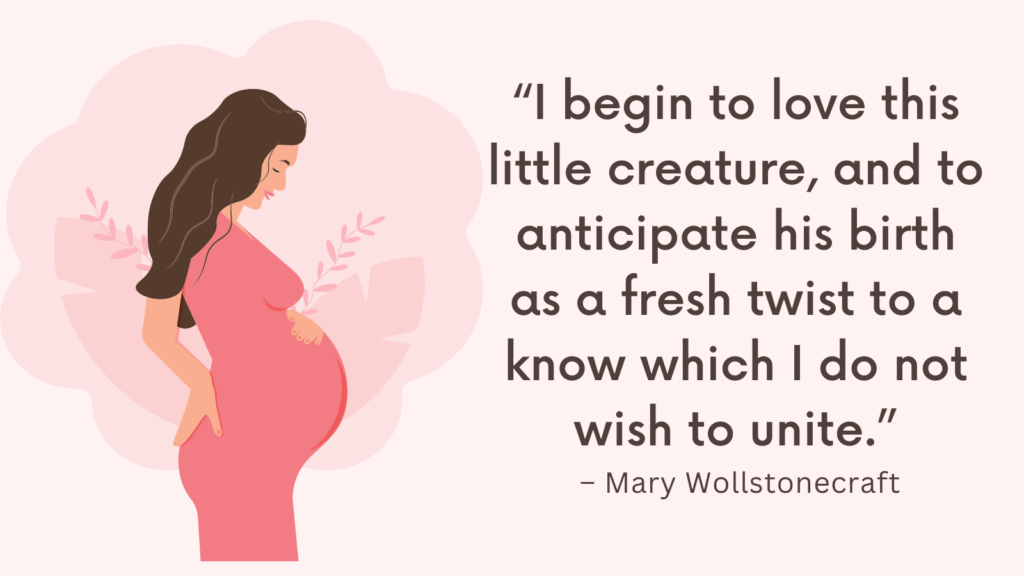Contractions, water breaking, and excitement as labor begins.
You’re 40 weeks pregnant! You’ve reached your official due date, but don’t be surprised if your baby hasn’t arrived yet—only about 5% of babies are born exactly on their due date! Your baby is fully developed, just waiting for the right moment to enter the world, while your body continues showing signs of labor.
Let’s explore your baby’s development, changes in your body, and what to do if labor doesn’t start this week.
What’s Happening to Your Baby?
At 40 weeks, your baby is about the size of a pumpkin (35-40 cm or 14-16 inches long, head to toe) and weighs around 3,200-3,600 grams (7-8 lbs). Your little one is fully developed, just waiting for labor to begin.
Major Developments This Week:
Baby is Fully Mature & Ready for Birth! – All organs are functioning, and baby is ready to breathe air.
Skull is Still Soft! – The bones in baby’s head remain flexible to help during delivery.
Movements May Slow Down Slightly! – Baby has very little space but should still move regularly.
Fat Deposits Are at Their Peak! – Baby is fully plump, helping regulate body temperature after birth.
Baby’s Reflexes are Strong! – They are ready to suck, swallow, and grip at birth.
Meconium is Ready for Baby’s First Poop! – Baby’s intestines are storing their first bowel movement, which will pass after birth.
Fact: If baby stays in the womb past 40 weeks, they continue to grow and may have longer nails and hair at birth!
What’s Happening to Your Body?
At 40 weeks pregnant, you’re probably feeling very ready to give birth! You may experience stronger contractions, more pelvic pressure, and increased labor signs.
Common Symptoms at 40 Weeks Pregnant:
Feeling Baby’s Movements Daily! – Even though space is tight, baby should still move regularly.
Bigger Baby Bump! – Your belly may look lower if baby has dropped.
Back Pain & Pelvic Pressure – As baby moves lower, pelvic discomfort and back pain may increase.
Braxton Hicks Contractions – Mild, irregular contractions may feel more frequent.
Lightning Crotch! – Sharp, shooting pains in the pelvis due to baby’s head pressing on nerves.
Frequent Urination – Baby’s head is putting extra pressure on your bladder.
Increased Vaginal Discharge & Mucus Plug Loss – A thick, jelly-like discharge may appear as your cervix prepares for labor.
Diarrhea or Loose Stools – Your body may be clearing itself out before labor.
Water Breaking (Possible!) – A gush or slow trickle of fluid means labor is beginning soon.
Swelling in Feet & Ankles (Edema) – Mild swelling, especially after standing, is common.
Leaky Breasts (Colostrum Production) – Your body is fully prepared for breastfeeding.
Extreme Fatigue or Sudden Energy Boost (Nesting) – Some women feel exhausted, while others get a burst of energy before labor.
Signs That Labor is Approaching
At 40 weeks, you may notice even stronger labor signs, but it’s also normal if labor hasn’t started yet. Here’s what to watch for:
Signs That Labor is Very Close:
Baby Has “Dropped” (Lightening) – Your belly looks lower, and breathing feels easier.
More Frequent & Stronger Braxton Hicks Contractions – They may start feeling like real contractions.
Loss of Mucus Plug (“Bloody Show”) – A thick, mucus-like discharge (possibly pink or brown-tinged) means labor is near.
Diarrhea or Loose Stools – Hormonal changes may cause loose stools before labor.
Water Breaking – A gush or trickle of amniotic fluid means labor is starting.
Lower Back Pain & Cramping – Persistent back pain may be a sign of early labor.
True Labor Contractions – These get stronger, last longer, and come closer together.
True labor contractions follow a pattern and get progressively more intense. If they come every 5 minutes and last 60 seconds for 1 hour, it’s time to go to the hospital!
What Happens If You Don’t Go Into Labor This Week?
If labor hasn’t started yet, don’t worry! Many pregnancies go past 40 weeks, and most doctors wait until 41-42 weeks before considering induction.
Ways to Naturally Encourage Labor:
Walking or Gentle Exercise – Gravity helps move baby lower into position.
Eating Dates – Some studies show eating 6 dates daily may help soften the cervix.
Nipple Stimulation – Can release oxytocin, which may help contractions start.
Sex (if safe for you) – Semen contains prostaglandins that can help soften the cervix.
Relaxing & Reducing Stress – Tension can slow labor from starting naturally.
If you go past 41 weeks, your doctor may schedule an induction to ensure baby stays safe.
How to Cope with Week 40 Pregnancy Symptoms
1. Tracking Baby’s Movements
Baby should move at least 10 times in 2 hours.
If movements slow down significantly, drink cold water or gently poke your belly.
Contact your doctor if you notice decreased movement.
2. Easing Back Pain & Pelvic Pressure
Use a pregnancy pillow for support.
Wear a belly support band to relieve strain.
Do gentle prenatal yoga or stretches.
3. Managing Braxton Hicks Contractions
Stay hydrated – dehydration can trigger contractions.
Change positions – walking or resting may help.
If contractions become painful or regular, contact your doctor.
4. Resting & Preparing for Labor
Take naps and conserve energy for delivery.
Review breathing techniques and relaxation strategies.
Keep your hospital bag ready.
What Should You Be Doing in Week 40?
Since baby could arrive at any moment, here’s what to focus on:
1. Keep Attending Weekly Prenatal Appointments
Your doctor may check your cervix for dilation and effacement.
Discuss induction options if labor doesn’t start soon.
2. Start Kick Counting Daily
Monitor baby’s movements at the same time each day.
If movements decrease significantly, contact your doctor.
3. Finalize Last-Minute Labor & Delivery Details
Make sure your partner or support person is ready.
Have emergency numbers and your doctor’s contact info handy.
4. Install the Car Seat
Most hospitals require a properly installed car seat before discharge.
5. Stay Calm & Be Patient
Labor can start anytime—try to relax and enjoy these final days.
Final Thoughts
You’re 40 weeks pregnant and officially at the finish line! Your baby is fully developed, ready for birth, and just waiting for labor to begin. Symptoms like back pain, pelvic pressure, and fatigue may be tough, but you’re doing an incredible job!



